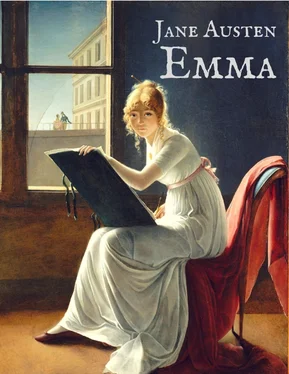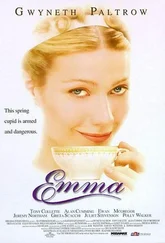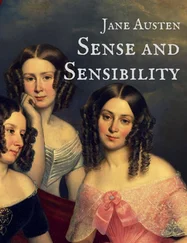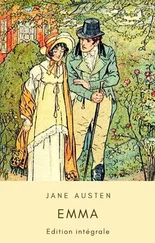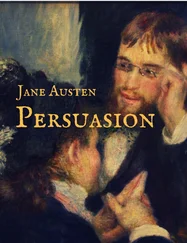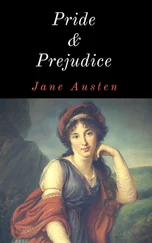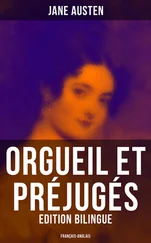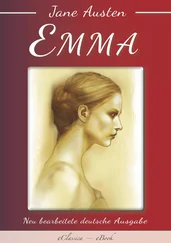Mr. Frank Churchill was one of the boasts of Highbury, and a lively curiosity to see him prevailed, though the compliment was so little returned that he had never been there in his life. His coming to visit his father had been often talked of but never achieved.
Now, upon his father's marriage, it was very generally proposed, as a most proper attention, that the visit should take place. There was not a dissentient voice on the subject, either when Mrs. Perry drank tea with Mrs. and Miss Bates, or when Mrs. and Miss Bates returned the visit. Now was the time for Mr. Frank Churchill to come among them; and the hope strengthened when it was understood that he had written to his new mother on the occasion. For a few days, every morning visit in Highbury included some mention of the handsome letter Mrs. Weston had received. “I suppose you have heard of the handsome letter Mr. Frank Churchill has written to Mrs. Weston? I understand it was a very handsome letter, indeed. Mr. Woodhouse told me of it. Mr. Woodhouse saw the letter, and he says he never saw such a handsome letter in his life.”
It was, indeed, a highly prized letter. Mrs. Weston had, of course, formed a very favourable idea of the young man; and such a pleasing attention was an irresistible proof of his great good sense, and a most welcome addition to every source and every expression of congratulation which her marriage had already secured. She felt herself a most fortunate woman; and she had lived long enough to know how fortunate she might well be thought, where the only regret was for a partial separation from friends whose friendship for her had never cooled, and who could ill bear to part with her.
She knew that at times she must be missed; and could not think, without pain, of Emma's losing a single pleasure, or suffering an hour's ennui, from the want of her companionableness: but dear Emma was of no feeble character; she was more equal to her situation than most girls would have been, and had sense, and energy, and spirits that might be hoped would bear her well and happily through its little difficulties and privations. And then there was such comfort in the very easy distance of Randalls from Hartfield, so convenient for even solitary female walking, and in Mr. Weston's disposition and circumstances, which would make the approaching season no hindrance to their spending half the evenings in the week together.
Her situation was altogether the subject of hours of gratitude to Mrs. Weston, and of moments only of regret; and her satisfaction—her more than satisfaction—her cheerful enjoyment, was so just and so apparent, that Emma, well as she knew her father, was sometimes taken by surprize at his being still able to pity 'poor Miss Taylor,' when they left her at Randalls in the centre of every domestic comfort, or saw her go away in the evening attended by her pleasant husband to a carriage of her own. But never did she go without Mr. Woodhouse's giving a gentle sigh, and saying, “Ah, poor Miss Taylor! She would be very glad to stay.”
There was no recovering Miss Taylor—nor much likelihood of ceasing to pity her; but a few weeks brought some alleviation to Mr. Woodhouse. The compliments of his neighbours were over; he was no longer teased by being wished joy of so sorrowful an event; and the wedding-cake, which had been a great distress to him, was all eat up. His own stomach could bear nothing rich, and he could never believe other people to be different from himself. What was unwholesome to him he regarded as unfit for any body; and he had, therefore, earnestly tried to dissuade them from having any wedding-cake at all, and when that proved vain, as earnestly tried to prevent any body's eating it. He had been at the pains of consulting Mr. Perry, the apothecary, on the subject. Mr. Perry was an intelligent, gentlemanlike man, whose frequent visits were one of the comforts of Mr. Woodhouse's life; and upon being applied to, he could not but acknowledge (though it seemed rather against the bias of inclination) that wedding-cake might certainly disagree with many—perhaps with most people, unless taken moderately. With such an opinion, in confirmation of his own, Mr. Woodhouse hoped to influence every visitor of the newly married pair; but still the cake was eaten; and there was no rest for his benevolent nerves till it was all gone.
There was a strange rumour in Highbury of all the little Perrys being seen with a slice of Mrs. Weston's wedding-cake in their hands: but Mr. Woodhouse would never believe it.
Mr. Woodhouse was fond of society in his own way. He liked very much to have his friends come and see him; and from various united causes, from his long residence at Hartfield, and his good nature, from his fortune, his house, and his daughter, he could command the visits of his own little circle, in a great measure, as he liked. He had not much intercourse with any families beyond that circle; his horror of late hours, and large dinner-parties, made him unfit for any acquaintance but such as would visit him on his own terms. Fortunately for him, Highbury, including Randalls in the same parish, and Donwell Abbey in the parish adjoining, the seat of Mr. Knightley, comprehended many such. Not unfrequently, through Emma's persuasion, he had some of the chosen and the best to dine with him: but evening parties were what he preferred; and, unless he fancied himself at any time unequal to company, there was scarcely an evening in the week in which Emma could not make up a card-table for him.
Real, long-standing regard brought the Westons and Mr. Knightley; and by Mr. Elton, a young man living alone without liking it, the privilege of exchanging any vacant evening of his own blank solitude for the elegancies and society of Mr. Woodhouse's drawing-room, and the smiles of his lovely daughter, was in no danger of being thrown away.
After these came a second set; among the most come-at-able of whom were Mrs. and Miss Bates, and Mrs. Goddard, three ladies almost always at the service of an invitation from Hartfield, and who were fetched and carried home so often, that Mr. Woodhouse thought it no hardship for either James or the horses. Had it taken place only once a year, it would have been a grievance.
Mrs. Bates, the widow of a former vicar of Highbury, was a very old lady, almost past every thing but tea and quadrille. She lived with her single daughter in a very small way, and was considered with all the regard and respect which a harmless old lady, under such untoward circumstances, can excite. Her daughter enjoyed a most uncommon degree of popularity for a woman neither young, handsome, rich, nor married. Miss Bates stood in the very worst predicament in the world for having much of the public favour; and she had no intellectual superiority to make atonement to herself, or frighten those who might hate her into outward respect. She had never boasted either beauty or cleverness. Her youth had passed without distinction, and her middle of life was devoted to the care of a failing mother, and the endeavour to make a small income go as far as possible. And yet she was a happy woman, and a woman whom no one named without good-will. It was her own universal good-will and contented temper which worked such wonders. She loved every body, was interested in every body's happiness, quicksighted to every body's merits; thought herself a most fortunate creature, and surrounded with blessings in such an excellent mother, and so many good neighbours and friends, and a home that wanted for nothing. The simplicity and cheerfulness of her nature, her contented and grateful spirit, were a recommendation to every body, and a mine of felicity to herself. She was a great talker upon little matters, which exactly suited Mr. Woodhouse, full of trivial communications and harmless gossip.
Mrs. Goddard was the mistress of a School—not of a seminary, or an establishment, or any thing which professed, in long sentences of refined nonsense, to combine liberal acquirements with elegant morality, upon new principles and new systems—and where young ladies for enormous pay might be screwed out of health and into vanity—but a real, honest, old-fashioned Boarding-school, where a reasonable quantity of accomplishments were sold at a reasonable price, and where girls might be sent to be out of the way, and scramble themselves into a little education, without any danger of coming back prodigies. Mrs. Goddard's school was in high repute—and very deservedly; for Highbury was reckoned a particularly healthy spot: she had an ample house and garden, gave the children plenty of wholesome food, let them run about a great deal in the summer, and in winter dressed their chilblains with her own hands. It was no wonder that a train of twenty young couple now walked after her to church. She was a plain, motherly kind of woman, who had worked hard in her youth, and now thought herself entitled to the occasional holiday of a tea-visit; and having formerly owed much to Mr. Woodhouse's kindness, felt his particular claim on her to leave her neat parlour, hung round with fancy-work, whenever she could, and win or lose a few sixpences by his fireside.
Читать дальше
